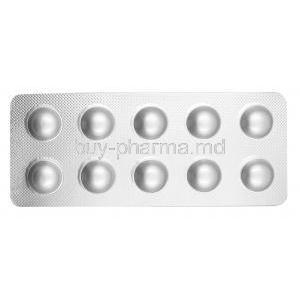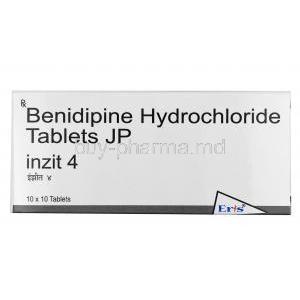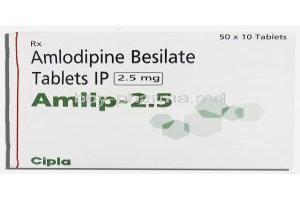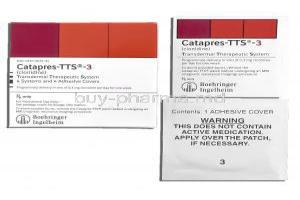Benidipine
- I. Introduction
- II. Composition
- III. Uses
- IV. Off-Label Uses
- V. How It Works
- VI. Dosage and Administration
- VII. Side Effects
- VIII. Common Side Effects
- IX. Important Precautions
- X. Interaction
- XII. Contraindications
- XIII. Careful Administration
- XIV. Administration to Elderly
- XV. Administration to Pregnant Women and Nursing Mothers
- XVI. Administration to Children
- XVII. Overdosage
- XVIII. Storage
I. Introduction
Benidipine, an effective medication in the field of modern cardiovascular treatment, is a product of extensive scientific research and development. Its transition from theory to use signifies a significant advancement in medical treatment. Widely recognized for its role in addressing cardiovascular ailments, Benidipine holds a vital place in today's medical landscape.
Overview of Benidipine
Benidipine, a calcium channel blocker known as a dihydropyridine, is effective in treating high blood pressure and chest pain. It works by adjusting the flow of calcium ions through cell membranes, which is crucial for its beneficial effects.
Historical Background and Development
Benidipine came into existence during part of the 20th century, which was a time of significant exploration into cardiovascular drug treatments. The creation of Benidipine was motivated by the requirement for improved and well-tolerated medications to treat high blood pressure.
Importance in Modern Medicine
In the field of contemporary healthcare, Benidipine is highly praised for its versatility and effectiveness. It plays a role in improving hypertension and angina pectoris while also potentially providing protective benefits, for the kidneys.
II. Composition
Chemical Structure and Properties
Benidipine has a chemical makeup that gives it a unique way of working in the body, with a long-lasting effect and being easily absorbed.

Formulations Available
Benidipine comes in types to suit a wide range of patient needs and medical demands, allowing customized treatment plans.
III. Uses
- Hypertension (High Blood Pressure): Benidipine is a potent and long-lasting drug indicated for the treatment of hypertension. It helps regulate blood pressure by relaxing blood vessels, making it easier for the heart to pump blood throughout the body 12.
- Angina Pectoris (Heart-Related Chest Pain): Benidipine is also used to manage angina pectoris. It helps relieve chest pain caused by coronary artery disease 12.
- Renoparenchymal Hypertension: Benidipine is indicated for the treatment of hypertension associated with renal parenchymal disease 1.
IV. Off-Label Uses
Preliminary studies have uncovered the benefits of this treatment in addressing various heart conditions, marking a new era in medical treatments. Benidipine shows the potential to improve arterial disease and boost blood flow to the extremities. Its ability to prevent migraines offers possibilities for unique approaches to treatment.
V. How It Works
Benidipines' main function lies in their ability to selectively block calcium channels, which play a role in regulating the functions of blood vessels and the heart. Doing so reduces resistance in blood vessels and improves the efficiency of the heart, highlighting its effectiveness as a comprehensive treatment option.
VI. Dosage and Administration
The amount of Benidipine prescribed is carefully adjusted based on each patient's medical history, considering all aspects of their health conditions. The instructions, for administering the medication are rooted in caution aiming for the best possible treatment results.
VII. Side Effects
Benidipine is known for its effectiveness in treating patients. However, it does come with some potential side effects. It's crucial to monitor and address a range of adverse reactions, spanning from minor to more serious issues.
VIII. Common Side Effects
- Swelling, an occurring issue, can be controlled well by adjusting the dosage and using additional treatments.
- Many patients experience headaches and dizziness, which typically improve with care.
- Digestive problems may require changes in diet and medical help.
IX. Important Precautions
Benidipine should not be given to groups, such as individuals with serious liver issues and expectant mothers, highlighting the importance of conducting thorough assessments on patients.
X. Interaction
When taking Benidipine, it's important to be mindful of how it interacts with medications, food, and alcohol, as this can affect how the drug works in your body, especially when you are taking multiple medications at the same time.
XII. Contraindications
Absolute Contraindications for Use
The use of Benidipine is not recommended for patients who are allergic to the drug or any of its components. Moreover, individuals with aortic stenosis should avoid taking it as the vasodilatory properties could worsen their condition.
Relative Contraindications and Risk Assessment
Contraindications that should be taken into consideration involve issues like moderate liver problems, in which Benidipine must be approached with care. It is crucial to conduct a risk evaluation to balance the advantages with the possible drawbacks in individuals suffering from congestive heart failure.
XIII. Careful Administration
Elderly Patients: Adjustments and Monitoring
In individuals, the body undergoes changes that may call for adjustments in medication dosage and increased monitoring to reduce the chances of negative reactions. Elderly patients frequently need lower starting doses and an increase based on how they respond and tolerate the medication.
Pregnancy and Nursing: Safety and Guidelines
Considering the harm to the baby's growth, it is suggested to use Benidipine only if the benefits outweigh the risks. Mothers who are nursing should be informed to stop breastfeeding or using the medication, considering how crucial it is for the mother.
Pediatric Use: Efficacy and Dosage Adjustments
The effectiveness and safety of Benidipine, in children have not been completely proven. It is important to adjust the dosage considering age, weight and how the patient responds to the treatment all while closely monitoring them.
XIV. Administration to Elderly
Dose Optimization and Safety Measures
When treating individuals it is important to start Benidipine at the lowest dose possible and then slowly raise it while keeping an eye on how well it works and if any negative reactions occur. This method is aimed at finding the effective dose that offers medical advantages while reducing potential harm.

Monitoring for Adverse Effects and Efficacy
It's important to check blood pressure and kidney function and watch out for any side effects when using Benidipine in elderly patients. Adjustments might be needed depending on how they react and if any new issues arise.
XV. Administration to Pregnant Women and Nursing Mothers
Fetal and Neonatal Safety Considerations
During pregnancy, it is advised to use Benidipine when the benefits outweigh the risks to the fetus. Studies before birth have indicated impacts on fetal growth in certain instances, highlighting the need for cautious evaluation and monitoring.
Recommendations for Breastfeeding
Due to information regarding the elimination of Benidipine in breast milk, it is advisable to avoid breastfeeding while undergoing treatment. The choice to either continue or stop breastfeeding or take the medication should be based on the drug's significance to the mother.
XVI. Administration to Children
Available Data and Age-specific Guidelines
When it comes to using Benidipine in children, there aren't rules to follow. However, it's recommended to use it based on the child's age, weight, and overall health condition.
Safety Profile and Dosing Recommendations
Healthcare providers should follow the guideline of "begin with a dose and increase gradually" when recommending Benidipine for children, keeping a close eye on both how well it works and any possible side effects during the course of treatment.
XVII. Overdosage
Symptoms and Immediate Actions
Signs of a dose of Benidipine could lead to serious low blood pressure, slow heart rate, and potentially heart failure. The priority is to stabilize the patient's heart condition by providing fluids and using vasopressors if needed.
Treatment Strategies and Supportive Care
Treatment for an overdose of Benidipine lacks remedies, so providing supportive care is essential. It is important to monitor the patient's vital signs, heart rhythm, and kidney function until their condition improves.
XVIII. Storage
Optimal Storage Conditions
Remember to store Benidipine in a dry place at room temperature to maintain its effectiveness. Keep it away from children to avoid any consumption.
Stability and Shelf Life
The durability of Benidipine, under the suggested storage conditions, confirms its longevity, as stated on the package.


